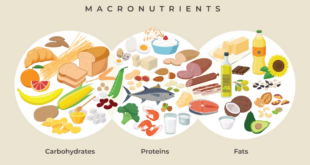
How to Create a Balanced Diet with Plant-Based Foods
In recent years, plant-based eating has gained significant popularity, not only due to its ethical and environmental benefits but also because of its impact on health. People across the globe are becoming more conscious of what they eat and turning to plant-based diets to improve their overall well-being. While the transition to a plant-based lifestyle can be incredibly beneficial for your health, it’s crucial to make sure your meals are balanced and provide all the essential nutrients your body needs.
A balanced diet is the foundation of a healthy life, and a plant-based diet is no exception. Although plant-based foods offer an abundance of nutrients, they require careful planning to ensure that you’re not missing out on essential vitamins and minerals commonly found in animal products. By focusing on whole, plant-based foods and making strategic choices, you can build a balanced and nutrient-rich diet that supports every aspect of your health.
In this article, we will explore how to create a balanced diet with plant-based foods, focusing on the essential nutrients to include, tips for planning meals, and practical ways to ensure your plant-based lifestyle is nutritionally complete.
Learn more at 365tastes.com
What is a Plant-Based Diet?
A plant-based diet consists primarily of foods derived from plants. This includes fruits, vegetables, whole grains, legumes, nuts, and seeds. Unlike veganism, which excludes all animal products, a plant-based diet can sometimes allow small portions of animal-based foods but encourages plant-based foods as the primary source of nutrition. The goal is to prioritize whole, unprocessed plant foods while minimizing processed or refined animal products.
By focusing on plant-based foods, you can reduce your risk of chronic diseases such as heart disease, type 2 diabetes, and obesity, while also promoting better digestion, weight management, and overall health. However, to reap the full benefits of a plant-based diet, you must pay attention to certain nutrients that can sometimes be challenging to obtain in sufficient quantities from plants alone.
Key Nutrients for a Balanced Plant-Based Diet
A well-balanced plant-based diet should include a variety of foods from different plant categories to ensure you receive all the nutrients necessary for your body to function optimally. While plant-based foods are nutrient-dense, certain nutrients may need special attention to ensure you meet your daily requirements. Let’s dive into the key nutrients you should focus on when creating a plant-based diet.
1.How to Create a Balanced Diet with Plant-Based Foods – Protein
Protein is one of the most crucial macronutrients, responsible for building and repairing tissues, supporting immune function, and providing the building blocks for muscles, skin, and enzymes. While animal products are rich sources of protein, there are plenty of plant-based alternatives that provide the same benefits.
Plant-Based Protein Sources:
- Legumes: Lentils, chickpeas, black beans, kidney beans, and peas are excellent protein sources.
- Tofu and Tempeh: Both are made from soybeans and are rich in protein. They are versatile and can be incorporated into various dishes.
- Quinoa: A complete protein, quinoa contains all nine essential amino acids and is a great addition to any plant-based diet.
- Nuts and Seeds: Almonds, walnuts, chia seeds, pumpkin seeds, and sunflower seeds offer protein and healthy fats.
- Whole Grains: Brown rice, oats, barley, and farro contain moderate amounts of protein and are great sources of fiber.
To make sure you’re getting enough protein, aim to incorporate different sources into your meals each day. Variety is key to ensuring your body gets all the amino acids it needs.
2. Iron
Iron is an essential mineral that helps transport oxygen throughout the body and supports energy levels. While iron is present in both plant and animal foods, plant-based sources contain non-heme iron, which is less readily absorbed by the body. However, with a little planning, you can easily get enough iron from plant-based foods.
Plant-Based Iron Sources:
- Legumes: Lentils, chickpeas, and beans are rich in non-heme iron.
- Tofu and Tempeh: These soy products are high in iron.
- Leafy Greens: Kale, spinach, and collard greens provide iron, as well as other beneficial nutrients.
- Nuts and Seeds: Pumpkin seeds, sesame seeds, and cashews are good sources of iron.
- Fortified Foods: Some plant-based milks, breakfast cereals, and plant-based protein powders are fortified with iron.
To enhance the absorption of non-heme iron, pair iron-rich foods with vitamin C sources like citrus fruits, bell peppers, or tomatoes. Vitamin C helps increase the absorption of iron from plant sources.
3.How to Create a Balanced Diet with Plant-Based Foods – Vitamin B12
Vitamin B12 is essential for nerve function, red blood cell formation, and DNA synthesis. This vitamin is primarily found in animal products, so those following a plant-based diet must pay extra attention to ensuring they’re getting enough of it. A deficiency in B12 can lead to anemia, fatigue, and nerve damage.

Plant-Based Sources of Vitamin B12:
- Fortified Plant-Based Milks: Many brands of soy, almond, and oat milk are fortified with vitamin B12.
- Fortified Cereals: Some breakfast cereals are fortified with B12, making them a great option for a quick breakfast.
- Nutritional Yeast: This vegan-friendly ingredient has a cheesy flavor and is often fortified with B12. It can be sprinkled on popcorn, salads, or pasta dishes.
- B12 Supplements: If you’re not getting enough B12 from fortified foods, consider taking a B12 supplement. Speak with a healthcare professional about the best supplement for your needs.
Regular monitoring of your B12 levels is essential to prevent a deficiency and support long-term health.
4. Omega-3 Fatty Acids
Omega-3 fatty acids are essential fats that support heart health, brain function, and reduce inflammation. While omega-3s are typically found in fatty fish, there are several plant-based sources that provide the same benefits.
Plant-Based Omega-3 Sources:
- Chia Seeds: These tiny seeds are a great source of omega-3 fatty acids and can easily be added to smoothies, oatmeal, or salads.
- Flaxseeds: Ground flaxseeds are an excellent source of omega-3s and can be sprinkled on cereals, mixed into smoothies, or added to baked goods.
- Walnuts: A great source of omega-3s, walnuts can be eaten as a snack or added to salads and smoothies.
- Hemp Seeds: These seeds provide a good amount of omega-3s and are also rich in protein.
- Algal Oil: Derived from algae, algal oil provides omega-3s in the same form found in fish oil, making it a great supplement for those on a plant-based diet.
Incorporating these omega-3-rich foods into your diet will help maintain heart health, reduce inflammation, and support cognitive function.
5.How to Create a Balanced Diet with Plant-Based Foods – Calcium
Calcium is vital for maintaining strong bones and teeth. While dairy products are a common source of calcium, there are plenty of plant-based alternatives that are rich in this important mineral.

- Leafy Greens: Kale, bok choy, collard greens, and broccoli are excellent sources of calcium.
- Fortified Plant-Based Milks: Many plant milks are fortified with calcium.
- Tofu: Calcium-set tofu is a great source of calcium and can be used in a variety of dishes.
- Nuts and Seeds: Almonds, sesame seeds, and chia seeds are high in calcium.
- Fruits: Figs and oranges provide a modest amount of calcium.
To ensure adequate calcium intake, aim to include a variety of these calcium-rich foods in your meals and snacks.
6. Vitamin D
Vitamin D plays an essential role in calcium absorption and bone health, and it also supports immune function. While sunlight is the best source of vitamin D, there are plant-based sources that can help meet your needs.
Plant-Based Vitamin D Sources:
- Fortified Plant-Based Milks: Many types of plant milk are fortified with vitamin D.
- Fortified Cereals: Some cereals are fortified with vitamin D.
- Mushrooms: Certain types of mushrooms, such as maitake and shiitake, contain vitamin D, especially when exposed to sunlight.
- Vitamin D Supplements: If you’re not getting enough vitamin D from food or sunlight, consider taking a supplement. It’s especially important during the winter months.
7. Fiber
Fiber is essential for digestive health, and plant-based diets are naturally high in fiber. A diet rich in fiber can promote regular bowel movements, reduce the risk of digestive issues, and contribute to heart health.
Plant-Based Fiber Sources:
- Legumes: Beans, lentils, and chickpeas are high in fiber.
- Whole Grains: Brown rice, quinoa, oats, and barley are excellent sources of fiber.
- Fruits and Vegetables: Apples, berries, broccoli, and carrots are fiber-rich.
- Nuts and Seeds: Almonds, chia seeds, and flaxseeds offer fiber as well.
Practical Tips for Building a Balanced Plant-Based Diet
Now that you know the essential nutrients needed in a plant-based diet, here are some practical tips to help you create balanced, nutrient-dense meals:
1. Plan Your Meals
Planning meals ahead of time ensures that you include a variety of plant-based foods. Consider using a meal planner or app to help organize your meals and grocery shopping list, ensuring you’re consuming all the nutrients you need throughout the week.
2. Choose Whole Foods
Focus on eating whole foods rather than processed plant-based products. Whole fruits, vegetables, grains, and legumes are packed with nutrients, while processed vegan foods can be high in sodium, unhealthy fats, and sugars.
3. Combine Protein Sources
To ensure you’re getting a complete protein profile, combine different plant proteins throughout the day. For example, pair beans with rice or tofu with whole-grain bread to provide a full range of essential amino acids.
4. Include Healthy Fats
Incorporate healthy fats such as those from avocados, nuts, and seeds to support hormone balance, brain health, and absorption of fat-soluble vitamins like vitamins A, D, E, and K.
5. Stay Hydrated
Drinking plenty of water is crucial for overall health. Water supports digestion, hydration, and helps flush toxins from the body. Incorporate water-rich fruits and vegetables such as cucumbers, watermelon, and citrus fruits into your meals.
Conclusion:
A plant-based diet can be incredibly beneficial for your health, but it’s essential to ensure it’s balanced and meets your nutritional needs. By focusing on a variety of whole plant foods—such as legumes, whole grains, leafy greens, nuts, and seeds—you can build a nutrient-dense diet that supports your body’s functions and enhances your overall well-being. Pay attention to key nutrients like protein, iron, vitamin B12, omega-3s, calcium, and vitamin D, and ensure you’re including a wide range of plant-based foods to cover all your needs. With a little planning and thoughtful meal preparation, you can enjoy the health benefits of a balanced plant-based diet every day.
 Tastes | Live healthy every day
Tastes | Live healthy every day


